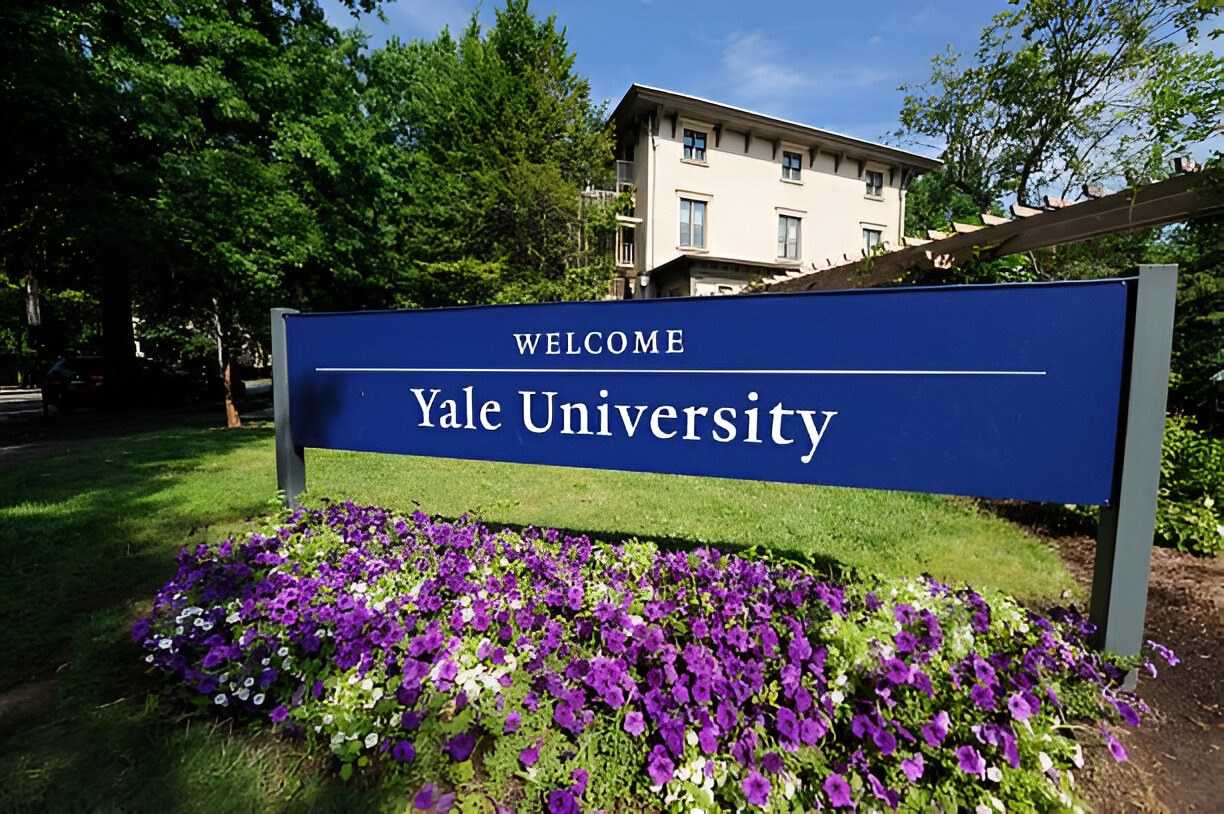By Natasha Sokoloff
The Hour, Norwalk, Conn.
(TNS)
President-elect Donald Trump has pledged a number of substantial education plans ahead of taking office, such as dismantling the U.S. Department of Education, axing student loan forgiveness plans, and various sweeping changes within K-12 schools and higher education.
Among those is a promise to “reclaim our once great educational institutions from the radical Left,” by hitting large, private university endowments with taxes and fines.
With one of the largest endowments in the nation, institutions like Yale University seem to be at the center of Republican attacks on wealthy, elite schools viewed as “left-leaning.” But in a second Trump term, more colleges and universities may be targeted by the sweeping education reform ideas he has floated, including an endowment tax. Whether such policies take place remains to be seen, but colleges are already bracing themselves for potential large-scale changes.
Before Trump took office for his first term, university endowments were largely untaxed. But that changed when Trump signed the Republican-backed tax overhaul into law in 2017, which included an endowment tax for wealthier colleges. Under the Tax Cuts and Jobs Act of 2017, colleges and universities with more than 500 students and endowments larger than $500,000 per student had to pay a 1.4% excise tax on investment income to the federal government.
With a $41.4 billion endowment, Yale was one of those schools.
“Right now, the institutions impacted by the tax are private colleges and universities that have large endowments or endowments of a certain size,” Liz Clark, vice president for policy and research for the National Association of College and University Business Officers. “But if Congress decides to open up the policy and change the legislative language around the tax, they could turn dials in ways that impact institutions that are not currently hit by this tax.”
Wesleyan University has the second largest endowment in Connecticut, with a balance of $1.55 billion as of June 2023. In fiscal year 2023, Wesleyan’s endowment value per full time student was just below the $500,000 threshold that would make it subject to the federal endowment tax, according to the NACUBO-Commonfund Study of Endowments. But it’s likely that Wesleyan’s endowment value will soon get to that point, and it would join schools like Yale and Harvard University in the endowment tax.
As it exists, and based on how the tax is defined, Clark said she already expected that more institutions would be hit with the endowment tax, and that the burden would increase over time. In 2022, 58 universities paid more than $243 million in this tax, she said, up from 33 institutions the previous year.
Other Connecticut schools such as Trinity College and the University of Connecticut don’t have as high a risk as being subject to the endowment tax currently, but that could also change in Trump’s second term.
Some of the provisions of the 2017 Tax Cuts and Jobs Act expire at the end of next year, and it’s likely that Congress will develop new tax legislation in 2025, Clark said. Although the endowment tax does not expire, she noted that Congress will be looking to find solutions to extend the current tax rates, and ways to offset paying for the continuation of those tax cuts.
“We have a lot of lawmakers who are seriously concerned about the federal budget deficit,” Clark said, “and with that, they’re going to be looking across the entire tax code for potential ways to reform it, and it is possible that they may be eyeing the current endowment excise tax.”
Last year, Vice President-elect JD Vance introduced a bill that would raise the excise tax on endowment net investment income from 1.4% to 35% for secular, private colleges and universities with at least $10 billion in assets under management. Senate Democrats ultimately blocked that effort, but it would have meant a substantial tax hike for elite schools like his alma mater, Yale.
And Trump’s plans go even further.
Not only has he vowed to target colleges he views as more liberal with endowment tax hikes, but he has pledged to impose new standards on American colleges and universities, and change the college accreditation system which he said has allowed colleges to “become dominated by Marxist Maniacs and lunatics.”
Trump also said last year he would advance a measure to fine colleges that do not align themselves with his goals “up to the entire amount of their endowment.”
He said that such fines and expansion of taxation of university endowments would pay for a new university he called ” American Academy,” a tuition-free online institution he said would be “strictly nonpolitical” with “no wokeness or jihadism.”
So, the current tax may only be a small preview of what is to come, even though NACUBO, and other nationwide organizations like the American Council on Education have expressed opposition to the federal endowment tax since its implementation, citing its adverse effects on an institution’s ability to provide high quality services and offer financial aid.
At Yale, about one-third of the annual operating budget comes from the endowment.
That means that every year, millions of endowment funds go toward financial aid, teaching and research, facilities and operations, according to its website.
For most colleges, the cost of educating its students is not fully covered by the net tuition revenue so colleges rely on donors and endowment funds, such as at Yale, where the endowment subsidizes every student’s tuition, as tuition only covers about 50% of the cost.
At Wesleyan, the endowment supported 20% of the university’s operating budget, contributing $56.2 million mostly toward financial aid and academics in fiscal year 2023, according to its website. And for large research universities like UConn, which has an endowment of $634 million, an endowment tax could mean losing support for hospitals, health care and other important purposes, Clark said.
“We believe it takes resources away from colleges and universities that would otherwise be utilized for scholarships, student aid, to help with access and affordability,” Clark said. “Those endowments also help support the hiring of faculty, the support of research and other academic programs at colleges and universities.”
But not everyone saw things the same way.
When Vance introduced his legislation to tax elite universities’ endowments in December 2023, he said that the current tax rate was “insane,” calling endowments hedge funds. “Harvard, Penn, Yale, many of our Ivy League institutions and others beyond that are little more than hedge funds with universities attached to them as pretend,” he had said.
But Clark said she believed many people held misconceptions regarding what endowments actually are and what they go towards.
“I think that endowments are widely misunderstood,” she said. “They are an important strategic finance tool to help colleges and universities meet the needs that they have, particularly when it comes to providing scholarships and institutional grant aid. If we look at trends over time, especially recently, colleges and universities annually have been providing more and more support in terms of grant aid, aid that does not need to be paid back to assist students with tuition at their institutions.”
Between 2013-14 and 2023-24, institutional grant aid for undergraduate students increased by 30%, according to a 2024 College Board study. And in that same period, institutional grant aid for all students rose by $19.6 billion, reaching a total of $82.8 billion in 2023-24.
It is endowments, and their focus on long term growth, that enable colleges and universities to make this investment year after year, Clark said. And even though they can invest into hedge funds, endowments are not hedge funds, as returns go towards supporting education at the institution in perpetuity.
“So we actually hope that Congress would take the opportunity to dial back the tax or recognize the good work that colleges and universities are are doing with the revenues from these endowments,” she said. And in the meantime, it was important for colleges and universities to remind lawmakers what these endowments do for access and affordability, she said.
_______
(c)2024 The Hour (Norwalk, Conn.). Visit The Hour (Norwalk, Conn.) at www.thehour.com. Distributed by Tribune Content Agency, LLC.
Thanks for reading CPA Practice Advisor!
Subscribe Already registered? Log In
Need more information? Read the FAQs




